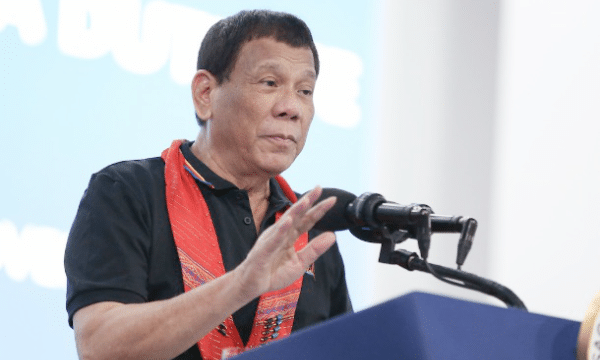
MANILA (UCAN): The International Criminal Court of Justice [ICC] in The Hague rejected a Philippine government bid to stop an investigation into the killing of drug suspects under former president, Rodrigo Duterte.
The rejection was made public on September 27 raising hopes among families of the victims of Duterte’s war on illegal drugs that they may get justice.
Thousands of suspected drug users were killed by unknown assassins or gunned down in police operations during the crackdown.
The government under current president, Ferdinand “Bongbong” Marcos Jr., recently moved to halt the investigation, claiming the ICC has no jurisdiction over alleged crimes against humanity. It also argued that there was already an ongoing investigation by various government agencies and that the alleged crimes were insufficient to prove crimes against humanity took place.
ICC prosecutor Karim Khan, however, rejected the Philippine government’s bid, saying, “None of those arguments have merit.” He wrote in his 21-page decision, “The prosecution respectfully reiterates its request that the chamber order the resumption of the investigation into the Situation in the Republic of the Philippines.”
With regard to jurisdiction, Article 18(2) [of the Rome Statute] does not allow a state to challenge the court’s jurisdiction with respect to a situation. Accordingly, under Article 18(2) a state can raise admissibility issues based on complementarity, but not jurisdictional issues
Khan also said that a former ICC member state, despite its withdrawal from membership, is not allowed to question the jurisdiction of the ICC during the material time when the alleged crimes happened.
“With regard to jurisdiction, Article 18(2) [of the Rome Statute] does not allow a state to challenge the court’s jurisdiction with respect to a situation. Accordingly, under Article 18(2) a state can raise admissibility issues based on complementarity, but not jurisdictional issues,” he added.
The Rome Statute was the treaty signed by more than 60 countries establishing the International Criminal Court to hear cases of genocide, crimes against humanity, war crimes and the crime of aggression.
Families of drug war victims said the ruling brought hope for justice although the process would “still take a few more years.”
As we celebrate the 500 years of Christianity in the Philippines. The Chaplaincy to Filipino Migrants organises an on-line talk every Tuesday at 9.00pm. You can join us at:
https://www.Facebook.com/CFM-Gifted-to-give-101039001847033
A drug war victim’s widow, who wished to remain anonymous, said, “First we are happy to know that the Marcos government’s opposition to this case was not approved by the prosecutor. We know that the Marcoses and the Dutertes are allies as seen in the last election, so this administration will block all possible legal steps that will endanger Duterte.”
First we are happy to know that the Marcos government’s opposition to this case was not approved by the prosecutor. We know that the Marcoses and the Dutertes are allies as seen in the last election, so this administration will block all possible legal steps that will endanger Duterte
She also said families of slain drug suspects are eagerly awaiting the ICC to hear Duterte’s case for killing almost 30,000 people without due process of law.
“We cannot wait. We cannot wait even for the trial to start. We want to look into Duterte’s eyes and him tell us he’s the one responsible for the killings that left so many widows and fatherless children,” she added.
In August, Marcos Jr. reiterated that he would maintain the position of his predecessor by not supporting any ICC probe into alleged atrocities under Duterte.
“The Philippines withdrew from the ICC in 2019 and the Philippines has no intention of rejoining the ICC,” Marcos told reporters in August.
Staunch Marcos critic, Father Flavie Villanueva of the Society of the Divine Word, said that drug war victims should not expect Marcos to cooperate with the ICC investigation because he is a close ally of Duterte.
“Will BBM [Bongbong Marcos] have the political will to go after not just the killers but the architect of the war on drugs, the former president? I don’t think so,” he said.
Meanwhile, Bishop Arturo Bastes, the retired bishop of the Diocese of Sorsogon said the ICC must pursue the drug war case.
“First of all, the victims of his drug war are poor Filipinos who struggle to earn a living. But the real [alleged] drug lords are the friends of Duterte. They financed his election and gave him billions making the notorious son of Duterte himself a fellow [alleged] drug lord!” Bishop Bastes claimed.
“I do sympathise with the victims of this hypocritical drug war. The help we can offer is only spiritual because the victims are dead! I will celebrate Mass for them. I think God will be merciful to these poor victims. But Duterte must be brought to justice already in this world thru the ICC as a lesson for all powerful persons!” Bishop Bastes said.







